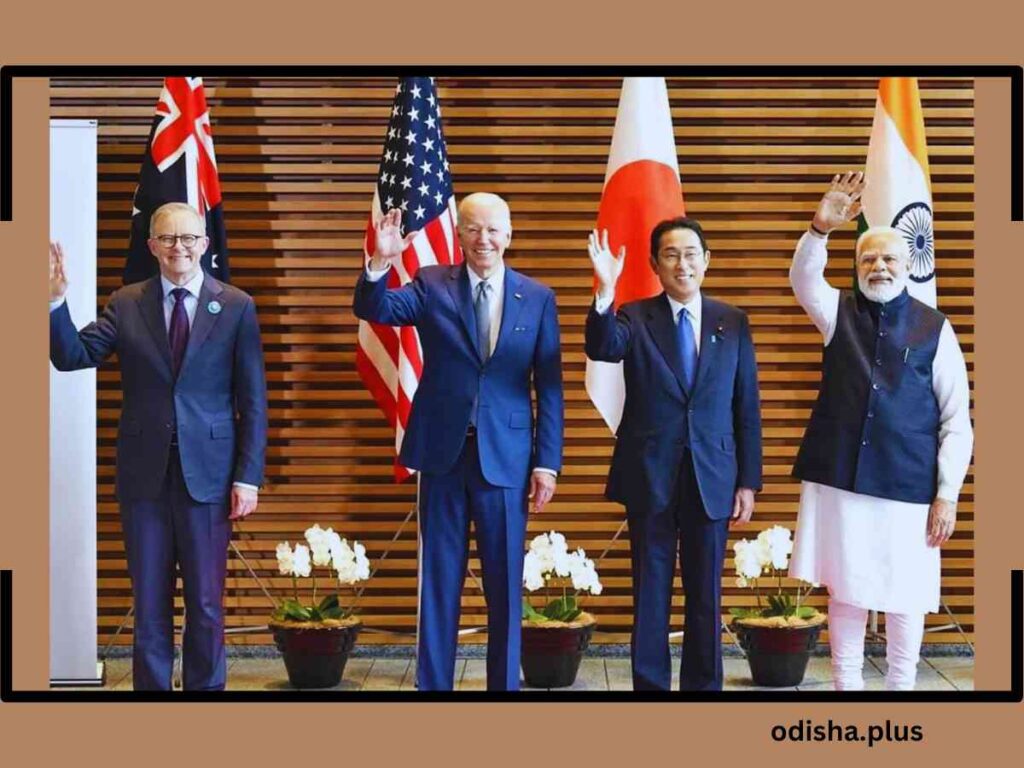India’s newfound status, politics of realism and significant stride in the world economy have changed the contours of international politics
Suresh Chandra Sarangi

The post-Cold War history has remained a mix of detente and confrontation. The USA, after its newfound hegemony in international politics, made thinkers believe that the world is unipolar. The People’s Republic of China a monolithic embraced state capitalism and saw the emergence of a mighty empire, steering through and achieving new laurels like being the fastest-growing economy, after Deng Xiaoping planted Capitalism in Mao’s China.
The Soviet Union, the great East European power that challenged American capitalism and expanded in Eastern Europe, Southeast Asia and other countries was fatigued after the breakdown and fragmentation of the USSR, following massive economic reforms under a Michael Gorbachev-initiated Perestroika plan and was gradually retreating from International politics. However, Putin’s emergence in Russian politics and his imperialistic ambition engineered through a strategy of expansion by aggressive military intervention has been reflected in the military aggression with Ukraine that disrupted the apple cart of International politics.
India’s Rise to Prominence
Not far away from China, the rise of another South Asian tiger, that is India, has metamorphosed international politics and with the philosophy of Panchsheel and Non-alignment, it helped the world to achieve a balance of power. Of course, India, steadfastly growing with its ambition towards the achievement of new superpower status, backed by being the fastest growing economy in the world, made it imperative for the world power to recognize a new Sun rising in the firmament of international politics that changed the balance of power equation.
When all methods of diplomacy and dialogue were being given a goodbye, by the superpowers, India’s newfound status, politics of realism and significant stride in the world economy have changed the contours of international politics. Gorbachev’s Perestroika, in its new avatar in India, is steering the country towards a new horizon in forging cooperation with the West and treading on cautiously with that of China and Russia. A question comes to mind, can India broker peace and make it an urgent necessity, in a fractious world, that is war-ravaged and appearing from the ashes of a pandemic-ridden world?
India’s Growing Influence on the Global Stage
The recent speeches at the United Nations General Assembly, delivered by India’s finance minister S. Jaishankar, is an indication of India riding high in international politics. This was a historic speech, where Jaishankar startled the world with his powerful oratory and at the same time exported India’s assertiveness, to the global platform. But PM Modi pushing the concept of strategic autonomy, has perhaps created a ripple in the minds of the leaders of the west, a clear thinking of accepting India as a permanent member of the elusive security council. The evolution of India’s foreign policy over the years speaks of India’s determinism and political realism.
The strategic visit of the prime minister appeared to be a global imperative to steer clear of extremes. The Quadrilateral Security Dialogue, which represents Australia, India, Japan and the United States opened with a serious note on emerging technologies. In March 2021 joint statement mentioned “cooperation on the critical technologies of the future to ensure that innovations are consistent with a free, open, inclusive and resilient Indo pacific”. Quad efforts were about focusing on “technical standards, 5g diversification and deployment, horizon scanning and technology supply chain”.
Strategic Importance of the Indian Ocean
In the book The Ocean of Churn, how the Indian Ocean shaped human history, Sanjeev Sanyal, amateur historian and deputy chief economic advisor to the government of India, states that much of human history has shaped itself out along the rim of the Indian Ocean. The Indian Ocean, which has played a significant role in world history, stretches across East Africa, the Middle East and the Indian subcontinent, to South East Asia and Australia. The same ocean, which has nurtured human civilization in the past, appears to be slowly drifting into a hotbed of geopolitics, because of the Chinese machinations.
In the area, for which Quad arises as a strategic imperative to keep it away from the power conflict. Moreover, with the long tail of the dragon, India’s never-ending China problem, as the economic clout of China seemingly facing a downward trend and India emerging with strong growth, it is necessary to keep the Indian Ocean out of the power conflicts. Most interestingly, India, since the days of Nehru has pursued a policy of neutrality through its policy of non-alignment. This neutrality keeps India out of military entanglement, in world affairs, not to intermingle in any military alliances or power blocks in international politics. Therefore, it maintains equal distance, with those who are left to center and right to center in world politics. The new equation is they try to be closer to India, for which India must assert itself and pursue its strategic autonomy in a calibrated manner.
Quad: A Bulwark Against Chinese Expansionism
One of the prime technology options of Quad was building an ecosystem of trust, integrity and resilience with further emphasis on openness, innovation, accountability and interoperability. The interesting fact about Quad is that all four members are democracies and they are considering this summit as a bulwark against Chinese expansionism, more particularly to checkmate China’s aggressive design, in the Indian Ocean and to keep it out of military escalation in the future. This shall produce a stable regional balance of power in the region, with the participation of countries like India, Japan and Australia.
So, as far as India is concerned, though another Presidential election is on the anvil, it appears that there is a paradigm shift in the US approach to strategy and policy. The fact remains that the trade war between China and the USA has become very poignant, China becoming an adversary for the US and the Indian Ocean can be an important area for forging trade contracts and settlements. So much so that the present presidential nominee and past president Donald Trump also spoke in favor of keeping the area free and an open Indo-Pacific. The most important fact is that the continuing war between Russia and Ukraine, and the lingering, vulnerable West Asia crisis have humbled the US to go for a strategic Indo-Pacific region.
US Interests in the Indo-Pacific Region
US interest is to keep Taiwan out of China’s aggressive postures and break the Sino-Russian military alliance. America is obsessed with the growing relationship between China and Russia, and that may propel a geopolitical nightmare. America knows better that India and China are not enjoying good neighborly relations, given the past wars and present border skirmishes. If America plays an important role in South Asia and the Indo-Pacific region, then India can be a strong bulwark to keep China out of strategic naval exercises of China. Quad is the new balance of power in the Indo-Pacific. China is observant of the developments and protested in the UN General Assembly, saying that the present combination is not in the interest of peace and the regrouping would mean militarisation of the area.
India is exactly looking for its strategic autonomy and PM Modi would certainly play second fiddle to the US in the region. But India’s strategic stand has always been the protection of its national interest and to keep India out of any military engagement in the Indian Ocean that may jeopardize our sovereignty. Besides, collaboration in the areas of emerging technology, health, Quad’s commitment to promote equitable access to promote safe, effective, monkeypox vaccine. India needs its maritime security and Pacific logistic framework. In international relations, there would be an opportunity in the shape of the emergence of a new balance of power in the Indo-Pacific region. With Quad, India is poised to write a new politico-economic and technology cooperation and PM Modi would strike a balance in India’s favor.
(The writer is a retired banker and lives in Bhubaneswar. Views expressed are personal)























